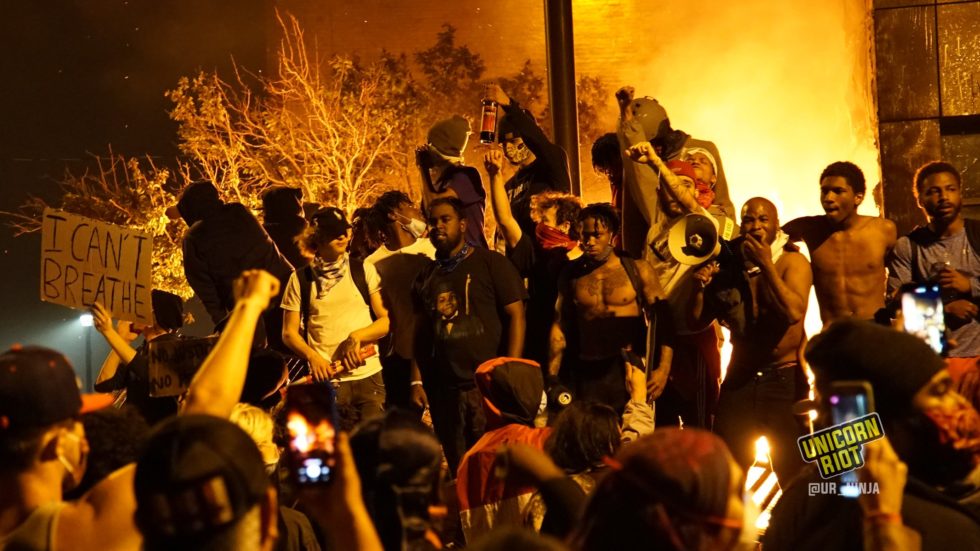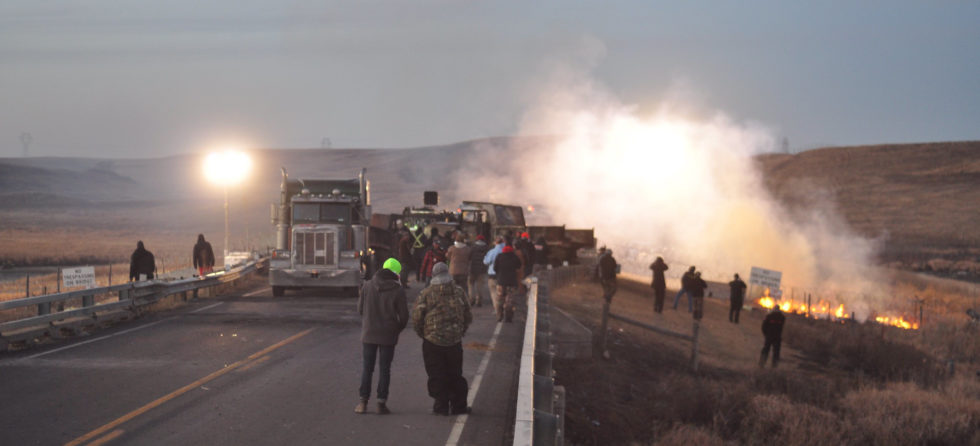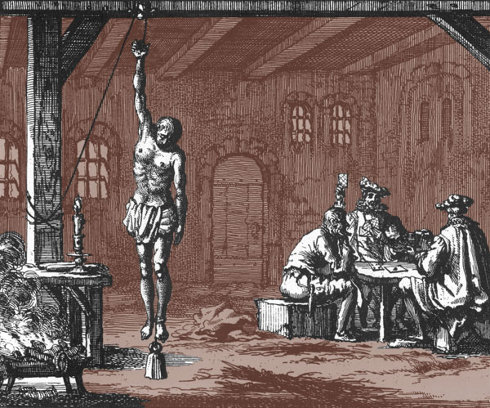
This article was originally published in the Fall 2024 issue of MennoMedia’s Leader Magazine. Illustration of George Blaurock generated using DALL-E by Tim Nafziger, August 26, 2024
As Mennonites and other Anabaptists prepare to celebrate the 500th anniversary of Anabaptism, we are marking the anniversary of January 21, 1525, when George Blaurock and Conrad Grebel gathered with others for a secret meeting in the house of Felix Manz in Zurich, Switzerland.
Earlier that day these reformers had lost a contentious theological debate in the city. Zurich city council had declared their meetings illegal and ordered them to baptize all their unbaptized children. Yet those gathered felt the bible was leading them differently: baptism should be an adult decision upon confession of faith. Blaurock turned to Grebel and asked him to baptize him. As the story goes, Grebel obliged and Blaurock became the first Anabaptist: twice baptized.
But this story is only one part of the Anabaptist origins. It is a story that has been told to intentionally minimize the stories of other radical reformers.
Mennonite Action and Vincent Harding
Before we tell the full origin story, let’s go 499 years forward to another January morning, this one in 2024. It’s January 16 and over a hundred Mennonites are walking through the Cannon House Office Building in Washington, D.C. This is part of the Capitol complex: “temple of our Democracy” according to house speaker Nancy Pelosi.
Those gathered are part of a group called Mennonite Action calling for a ceasefire in Gaza. On a pre-arranged signal, they all sit down. It is a creative disruption, like Jesus’ nonviolent direct action in the temple in Mark 11:11-19. Rather than pulling out a whip, the Anabaptists sit down and began singing hymns until they are arrested by Capitol police.
Mennonite Action is building on the work of groups like Pink Menno, Community Peacemaker Teams and On Earth Peace. These are Anabaptist-rooted groups who have gone beyond conscientious objection to actively working for justice and peace. They have often faced pushback from Mennonites who are more focused on personal holiness and traditional ideas of nonresistance.
(more…)
TimN
August 27, 2024
Anabaptism, Four Streams of Anabaptism Series, Mennonite Action, Nonviolence, Peace & Peacemaking, Politics, Power, Social movements
Read more >

This essay was originally published in Anabaptist World in July 2022 as Quilts and Power: What Malcolm Gladwell is missing about Mennonites
On June 22, author and speaker Malcolm Gladwell published an essay on his participation in a Mennonite wedding in the town where he grew up in southern Ontario. Gladwell opens the piece by summarizing his previous coverage of Mennonites and expressing his deep affection for our community.
Gladwell writes enthusiastically that Mennonites are a “low power distance” culture. Power distance is a term from sociology that refers to the extent to which people of low status accept unequal distribution of power. In other words, Gladwell is saying Mennonites are wary of hierarchy. He says we have abandoned “the aggressive pursuit of status markers.”
Resisting political domination and illegitimate authority are at the core of Anabaptism. However, Gladwell’s public relations campaign on our behalf is problematic. Here’s why: Mennonites do have status markers, they are just different (sometimes) from those of dominant culture in the U.S. and Canada. If you advertise Mennonites as having no status markers, you set up false expectations that will lead to disillusionment by people who start attending Mennonite churches. (more…)
TimN
August 27, 2023
Mennonite Church USA, Politics, Power, Privilege
Read more >

This was originally posted on Facebook on February 12, 2008.
I just read John McCain’s victory speech after today’s Republican primaries. This passage caught my eye:
They will paint a picture of the world in which America’s mistakes are a greater threat to our security than the malevolent intentions of an enemy that despises us and our ideals; a world that can be made safer and more peaceful by placating our implacable foes and breaking faith with allies and the millions of people in this world for whom America, and the global progress of our ideals, has long been “the last, best hope of earth.”
It’s interesting to read this passage in light of Confessions of an Econonomic Hit Man by John Perkins which I’m just finishing. The book is a highly readable exposé of Perkin’s own role in America’s “mistakes” – actually America’s tremendous success in building a global corporatocracy. It’s this corporatocracy that has directly (see Mujahideen) and indirectly nurtured corrosive grievance into extremism. (more…)
TimN
February 12, 2022
Economics, empire, patriotism, Politics
Read more >
This was originally published by Tim Nafziger in Jesus Radicals on December 18, 2010

The arrest of Assange and attacks on Mastercard, Visa and Paypal by “Operation Payback” have garnered far more attention than the cables themselves. Their denial of service attacks shut down these major sites by loading the site over and over again very quickly. The real world equivalent might be a huge crowd of people showing up to the mall with no intentions of shopping so that no one could get in to shop.
The New York Times quoted one Internet guru comparing Operation Payback to the battle at Lexington that started the Revolutionary war in the United States. (more…)
TimN
September 5, 2021
Politics, Technology
Read more >

This post was co-written by Tim Nafziger and Mark van Steenwyk in 2017 (see original) in response to the backlash against anti-fascists actions in Charlottesville, Virginian in August 2017. We’re reposting it with a new title because it feels even more relevant today as we watch the white liberal response to the burning of the police precinct building in Minneapolis last night. If you’re not a pacifist, see what happens when you substitute the word “liberal” for “pacifist.” If you aren’t Mennonite, consider what our message might look like to your own community.
This is the second in a series of pieces we’ve co-written. This article builds on our first together in 2010: Oppression analysis on its own isn’t enough: Becoming an Ally
In the last two months, in the wake of the “Unite the Right” rally in Charlottesville, Virginia, we’ve read many white people in my Mennonite community and others committed to nonviolence reiterating their commitment to peace. In a recent article for Anabaptist historians, Tobin Miller-Sherer describes these “smug and satisfied declarations about the superiority of nonviolence” as “bumptious.” This is a good word because Mennonites are extremely skilled at being proud in a humble way.
Why? Let’s take a closer look.
White Mennonites are eager to love their Neo-Nazi enemies who showed up in Charlottesville on August 12, but Mennonite pastor Isaac Villegas calls us to be more honest about who their enemies are: (more…)
TimN
May 29, 2020
Nonviolence, Polarization, Police, Police Brutality, Politics
Read more >

This morning’s NY Times piece, “How It All Came Apart for Bernie Sanders” is a must read for every supporter of the Sanders campaign. It’s not a pleasant article, but learning from mistakes is critical collective work, even when it happens in a painful public way. While the focus of my political work has not been electoral campaigns, I think we have to recognize that the Bernie movement is inextricably tied to electoral politics. So it must, to some extent, submit to measuring itself by that framework, which is the focus on the NY Times piece. It must also grapple with a grasroots movement measuring stick as well given that the campaign claimed that mantle. Alexander Burns and Jonathan Martin do not speak that language and so I will try to do some extrapolation work from their journalism. (more…)
TimN
March 21, 2020
empire, Politics, Power, President
Read more >

In a May 2014 letter in The Mennonite, C. Norman Kraus asked whether the role of Mennonite Church USA Executive Director (ED) and has begun to look like a "new papal office." He said, "…are we not loading an institutional position with official authority that our polity does not accommodate?"
By bringing the pope into it, Kraus is drawing attention to some important questions about how the ED functions. Stay with me as we take a journey through the crufty corners of Mennonite bureaucracy and bylaws. It’s hard slogging, but it matters.
The response from Executive Board and Executive Director
Elizabeth Soto Albrecht and Ed Diller, current MC USA moderator and a former moderator of the EB respectively, responded to Kraus in an August 2014 letter to the editor in which they stated that "…there is no papal office in Mennonite Church USA.". They went on to defend the current role of ED with this mandate from the bylaws: "an Executive Director as a primary administrative officer who shall be its principal agent in the management of Mennonite Church USA."
Managing Mennonite Church USA… sounds pretty dramatic, eh? They left out the next point, which makes the organizational scope of the role sound a bit less grandiose: "The Executive Director shall conduct the administrative affairs of the Executive Board, serve as an officer, and supervise employees of Mennonite Church USA." The Mennonite Church USA being managed is an organization with a staff of 25 people, not the 90,000+ members of the denomination.
(more…)
TimN
October 8, 2014
Change, Mennonite Church USA, Politics, Pope, Power
Read more >
This is the first in a four part series from my essay entitled, “The Early Anabaptist Movement through the Lens of Social Movement Theory.”
By way of introduction to my piece, I wrote the following poem. I invite you to read it as an exercise of imagining what the emerging Anabaptist movement must have felt like to a new believer.

Movement of the Word, 1525-1535
The word spreads on farms,
in taverns and barns, in sewing circles
the fold grows, stitch by stitch.
Behind the looms we whisper
good news and now dozens come to sit
on stumps and stone, our forest pews.
We dare not learn our leaders’ names,
for fear that tortured tongues might speak;
we know the brothers when they say,
“The Lord’s peace remain with thee.”
‘Til He returns to vanquish our foes,
many join Christ’s agony. (more…)
KaterinaF
March 15, 2014
Anabaptism, History, Martyrdom, Poetry, Politics, Social movements
Read more >
I recently wrote about Romans 13 and the state. I mentioned that I did not believe that text was even about the Roman government. I believe, based upon the evidence I have seen, that Romans 13 talks about reconciling Jewish and Gentile Christians in relation to the religious, community authorities. Tyler Tully picked up on this and wrote a far more detailed analysis of this here and here, which I strongly recommend reading.
Today, another questionable text in regards to the New Testament and the state has been brought up, this time from Peter instead of Paul:
Be subject for the Lord’s sake to every human institution, whether it be to the emperor as supreme, or to governors as sent by him to punish those who do evil and to praise those who do good. For this is the will of God, that by doing good you should put to silence the ignorance of foolish people. Live as people who are free, not using your freedom as a cover-up for evil, but living as servants of God. Honor everyone. Love the brotherhood. Fear God. Honor the emperor. (1 Peter 2:13-17 ESV)
This passage is a bit different than Romans 13. Unlike Romans 13, this passage is pretty straightforward. Romans talks about vague authorities, the sword, and taxes, and it is surrounded by teachings on religious instruction and ethics. Simply put, Romans requires a lot of unpacking in addition to looking at possible translation errors. On the other hand, this passage from 1 Peter is pretty much independent, and any issues in our reading of the text would primarily originate from possible translation errors. (more…)
KevinD
February 12, 2014
Anabaptism, empire, Interpretation, neo-Anabaptism, patriotism, Politics, Power, President, The Bible1 Peter, empire, Jesus, kingdom, Peter, Romans 13, the state
Read more >
There was one text in the Bible that has been the most influential on my life. It was this text that really helped convince me to become a Christian, and it was this text that brought me into radical politics. The passage I am referring to is the Sermon on the Mount.
It was when I was in middle school that I was first introduced to this famous sermon, and it ignited my interest in the gospel. By reading its words, I fell in love with the man who spoke them, and I wanted to apply the sermon to all aspects of my life. It was a big reason that I became interested in left-wing and anti-war movements as well. It would be years later, when I read Leo Tolstoy’s The Kingdom of God Is Within You, that I really started to realize just how much was packed into Matthew 5-7. Recently, a friend of mine who I know from both Young Anabaptist Radicals and MennoNerds, said, ”The Sermon on the Mount or Plain is the Christian’s constitution.” I think there is a lot of truth to that. (more…)
KevinD
November 13, 2013
Anabaptism, Church, Economics, empire, Ethics, neo-Anabaptism, Nonviolence, PoliticsChristian Anarchism, Constitution, Leo Tolstoy, politics of Jesus, Sermon on the Mount, the Kingdom of God Is Within You
Read more >
This is cross-posted from As of Yet Untitled
The last two months have seen a growing number of articles on John Howard Yoder’s sexual harassment and abuse of women (for a list of articles, see the Women in Learship Project’s timeline and annotated bibliography) led by Barbra Graber’s July 17 article on Our Stories Untold. Many of these pieces have been in conversation with Dr. Ruth Krall’s important book, The Elephants in God’s Living Room, Volume Three: The Mennonite Church and John Howard Yoder, Collected Essays, which I draw on heavily in this article. I especially recommend her sixth chapter, “John Howard Yoder, D. Theol. 1927-1997: Believer’s Church Theologian and Ordained Mennonite Clergyman,” which looks in detail at Yoder as a case study.
In joining this conversation, I’d like to look particularly at how systemic issues of power and privilege played out in the tiptoeing response of Mennonite church institutions and their leaders to Yoder’s persistent sexual harassment and sexual abuse of women. In her introduction, Krall succinctly names the many power layers of systemic privilege from which Yoder benefitted. He was a “clan-protected, powerful, tenured, white married male.” (Krall, 16) We have much to learn from looking at those layers.
The problem with sexual misconduct
In her introduction to the collection, Krall points out that the term “sexual misconduct,” which has been used to describe Yoder’s behavior, is unhelpful because it does not differentiate between consenting adultery and coercive, violent and dominating behaviors. (Krall, 6).
(more…)
TimN
September 10, 2013
Mennonite Church USA, Politics, Power, Sexism, Social justice
Read more >

Yesterday being Father’s Day, I naturally got to thinking about my father. I love him dearly, but he is literally the exact opposite of almost everything I stand for. To give you a rough picture of who he is, he listens to Rush Limbaugh, Michael Savage, Sean Hannity, and Glenn Beck on his radio daily; he used to be a police officer, then a constable, and now he is a TSA agent. That is only the tip of the iceberg. What often gets me thinking, and the reason I write this post, is the sort of fusion of cultural Christianity and American patriotism that I find with people like my father. In this context, Christianity is not so much a way of life, but more like an ethnic heritage and set of social customs that are merely used to reflect the American way of life.
Though it was my father who got me thinking about this subject, it is something that is found globally. Every empire for the last 1700 years has been turning Christianity, or at least the facade of Christianity, into a religion that can be used to reinforce the imperial way of being. I think a great example of what this kind of Christianity is pretty much any state church in western Europe. Most of these churches have almost lost every single legitimate believer, but a shell of Christianity remains as part of the historical and national heritage. Church is for baptisms, confirmations, weddings, funerals, and presidential inaugurations, but very little of it is used for everyday Christianity. I also suspect that Mainline Protestantism will be in a similar situation either very soon, or it is already there. (more…)
KevinD
June 17, 2013
Anabaptism, Discipleship, empire, patriotism, PoliticsAnabaptist, Caesar, Gospel, Jesus, Kingdom of God, Politics, Social Gospel, State Church
Read more >
I am sure that many here and elsewhere are overjoyed with the popularity surge that Anabaptism is receiving of late, especially those that stem from Mennonite origins, since it has given them a means to experience more of the glare of publicity.
Some most likely think that this is a good thing, after all others are becoming familiar with that legendary group. Yet I feel that people need to be concerned, particularly when individuals are using Anabaptism for a denominational agenda?
In a blog-post entitled An Anabaptist Infatuation Amongst Some Southern Baptists by Joshua Breland he writes:
There has been an increase of blogging recently regarding how great and wonderful the Anabaptists were/are and how much we modern day Southern Baptists owe to the so called “radical reformers.” Often the Anabaptist “hoorahs” are joined with condemnatory remarks about the evil and oppressive magisterial Calvinist reformers.
The author adds in his opinion, “The narrative seems to be, “anyone but the Calvinist magisterial reformers.”
As of late the Southern Baptist Convention is in a state of fragmentation with the influx of Reformed theology specifically Calvinism or the self-styled “Doctrines of Grace”. It is apparent that the SBC is seeking some sort of Arminian Reformation era link in the same fashion that the Reformed churches call back to John Calvin as their theological forebear.
I just wonder if once all the contention between the Calvinists and Arminians over in the SBC has concluded will the Anabaptists be as popular and will their reputation remain intact. I am going to look into this matter a little more and make a follow up post later.
AOG
April 4, 2013
Anabaptism, Media, PoliticsBaptists, SBC
Read more >

A page from the Martyr’s mirror depicting Geleyn Corneliss, who was hung by his thumb while his torturers played cards. Modified illustration from Third Way Cafe
Crossposted from As of Yet Untitled
Yesterday, March 6, 2013, we in the US learned in The Guardian that our government put torture and death at the center of our policy in Iraq. According to the article, Jim Steele, who was heavily involved in the El Salvadoran death squads, was called in to replicate the model in Iraq in 2004 with millions of dollars at his disposal. This strategy, known as the “Salvador Option” was apparently known and discussed at the highest levels of the US government and supervised closely by General David Petraeus. These actions are consistent with US policy since the end of World War II: torture and mass murder in support of US economic interests.
This is no aberration: it is the norm for empire. Nevertheless, many will hem and haw, rationalize and suggest this is still a few bad apples, albeit 4 star general apples. Tragically, most in the United States will simply ignore it. But what about us, as Mennonites: as Anabaptist Christians? What will we do?
(more…)
TimN
March 7, 2013
Anabaptism, Death, empire, Foreign Policy, Martyrdom, Mennonite Church USA, Military, Politics, Torture, US Military
Read more >
It was only recently that I have come to identify with Anabaptist Christianity, and it has only been within the last few days that I have come in contact with Young Anabaptist Radicals. Nevertheless, I have been graciously invited to share my story with you, and introduce myself.
My religious journey really started out like most Americans. I was raised in a home that was culturally Christian. We occasionally went to church (typically Christmas or Easter), were baptized at a young age, attended Sunday school every so often, and were read stories from the Bible. My family was the standard Mainline Protestant American family. Despite my early experiences with Christianity, I never did actually believe in it. Really, I was more of an agnostic on most days, and an atheist on some. I spent most of my early childhood like this.
Despite my secularism, I did eventually develop an admiration for the Buddha, and before I knew it, I was reciting the Three Refuges, reading Buddhist literature, and identifying as a Buddhist. Then, due to by brother’s influence, I developed a small interest in Christianity. I got my first Bible, and I began attending church with my brother. Unfortunately, it was an Evangelical Free megachurch that had an unholy mix of the Prosperity Gospel and Fundamentalism. It is needless to say that I did not last long in that church, but it did have an effect on me. I associated it with Christianity and returned to Buddhism.
This would all change when I came across a book by my favorite Buddhist scholar and activist — Thich Nhat Hanh. His book Living Buddha, Living Christ completely changed my understanding of Christianity. It introduced me to St. Francis of Assisi, Fr. Daniel Berrigan, Elaine Pagels, and numerous others. For the first time in my life, I was introduced to some good theology. Not a theology of greed or hate, but one of social justice and love. So with this book, I developed an interest in Christianity again.
(more…)
KevinD
November 2, 2012
Anabaptism, Biographical, Blog, Community, Interfaith, liberation theology, Politics, Social justice, Spiritual Life, Young FolksAnabaptist, anarchism, Christian, Christian Anarchism, greetings, Introduction, Young Anabaptist Radicals
Read more >









